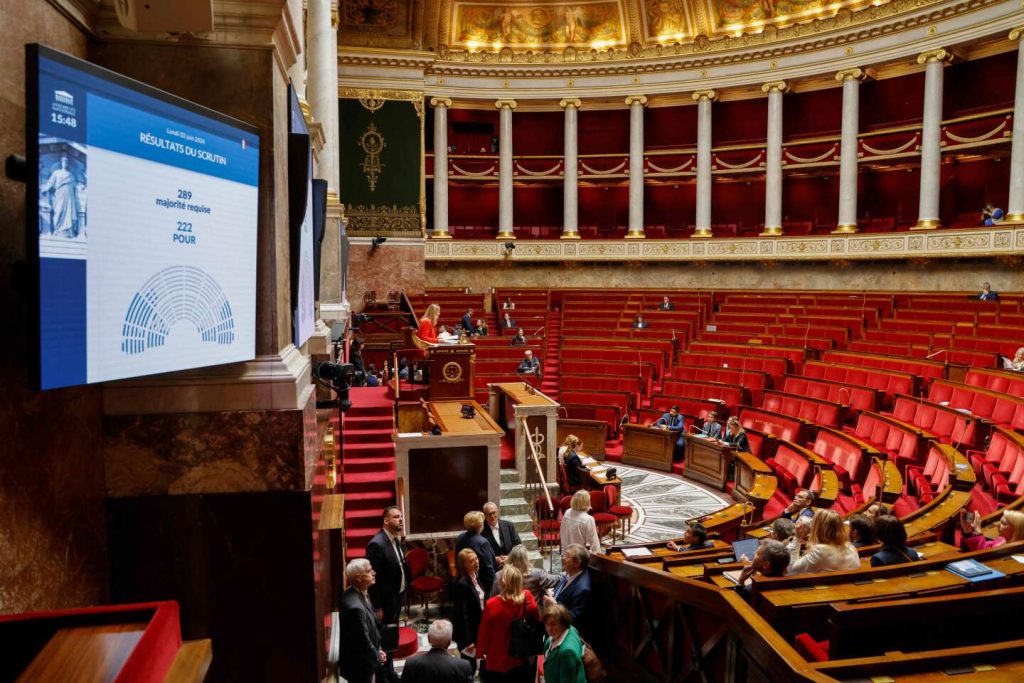The results of a censure vote tabled by the left-wing party La France insoumise during a parliamentary session at the National Assembly in Paris on June 3, 2024 were reported in the news. The motion did not succeed, as expected, lacking the support of deputies from Les Républicains (LR). The motion presented by La France insoumise (LFI), the communists, and about ten ecologists garnered 222 votes out of the required 289. The second one proposed by the far-right party Rassemblement national (RN) only received 89 votes, mostly from the far-right group and two non-affiliated deputies.
The opposition parties, along with RN, had submitted their motions to challenge the government’s decision not to introduce a supplementary budget bill after the public deficit rose to 5.5% of GDP for 2023 instead of the expected 4.9%. They accused the government of having a hidden agenda and being ready to implement austerity measures after the European elections. This act of parliamentary defiance gained significance after the American credit rating agency Standard & Poor’s downgraded France’s sovereign rating from AA to AA- for the first time since 2013. Ahead of the European elections on June 9, the opposition seized the opportunity to criticize the executive’s economic competency.
During the parliamentary session, deputies from LFI and RN criticized the government’s handling of the economy, accusing it of mismanagement and failing to address the growing public debt. The Minister of Economy, Bruno Le Maire, had to unexpectedly announce the cancellation of ten billion euros in credits in February, sparking outrage from the opposition. Over the weekend preceding the debate on the motions, Le Maire defended his economic policy in various media appearances, emphasizing the importance of the government’s spending to support the French economy during the Covid-19 crisis since 2020. Despite the downgrade by Standard & Poor’s, Le Maire remained defiant, stating that the high debt levels were a result of his measures to save the economy.
The tensions between the government and the opposition escalated during the parliamentary session, with accusations of mismanagement and incompetence flying back and forth between the two sides. The opposition parties claimed that the government’s refusal to introduce a supplementary budget bill was a sign of its intention to impose austerity measures in the future. Meanwhile, the government defended its economic policies, emphasizing the importance of supporting the economy during the pandemic and pointing to the need for continued investment. The verbal sparring between the deputies from different political parties highlighted the deep divisions within the National Assembly and the intense political climate leading up to the European elections.
In conclusion, the censure vote tabled by La France insoumise and other opposition parties against the government’s economic policies did not succeed in the National Assembly. The motion was defeated due to a lack of support from the conservative party Les Républicains. The opposition criticized the government for its handling of the public deficit and accused it of planning to implement austerity measures post-election. The government defended its economic policies, attributing the high debt levels to measures taken to support the economy during the Covid-19 crisis. The political tensions and divisions within the National Assembly highlighted the challenges facing the French government in navigating economic recovery and policy decisions amid a polarized political landscape.


